Are you feeling frustrated by unfair labor practices at your workplace? You're not alone, as many employees face challenges when advocating for their rights. In this article, we will walk you through the process of filing a formal complaint, providing a template that makes it easier to articulate your concerns clearly and effectively. So grab a cup of coffee, and let's dive into the details togetherâyour voice matters!
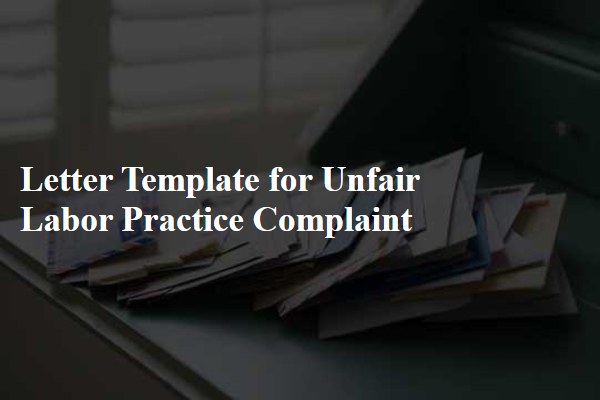
Detailed Description of Incident
In a recent case of unfair labor practices, an employee at XYZ Manufacturing Company, located in Springfield, reported a series of incidents occurring between July and August 2023. During this timeframe, the employee, who had been active in union organizing efforts, faced intimidation from a supervisor, specifically Mr. John Doe, who threatened job security and issued unfair performance evaluations. Furthermore, on August 15, a scheduled meeting regarding worker rights was abruptly canceled under the pretext of operational needs, a tactic believed to suppress employee concerns about workplace safety. This cancellation denied employees, including the complainant, crucial insights into their rights under the National Labor Relations Act, effectively stifling their ability to organize. These actions contribute to a hostile work environment, undermining the integrity of labor relations within the company.
Evidence and Documentation
Unfair labor practices can significantly impact employee rights and workplace dynamics. Comprehensive evidence and documentation are essential for substantiating complaints. Key documents include witness statements from affected employees detailing specific incidents, timestamps, and locations. Internal communications such as emails or memos referencing policy violations or retaliation contribute to the case. Collective bargaining agreements should be examined for breaches, alongside records of disciplinary actions that demonstrate inconsistency or bias. Video or audio recordings might serve as crucial evidence depending on state laws protecting privacy. All collected materials date back to incidents, ideally within the last six months to establish a timely pattern. Organizing these documents systematically aids in presenting a compelling narrative to labor boards or legal representatives.
Relevant Labor Laws
The National Labor Relations Act (NLRA) protects employees' rights regarding collective bargaining and activities, including the right to complain about unfair labor practices. Under Section 7, employees have the right to engage in concerted activities for mutual aid or protection. Common unfair labor practices include employer retaliation against union activities, discrimination against employees due to their union membership, or refusal to bargain in good faith. The National Labor Relations Board (NLRB), established to enforce these laws, investigates complaints and enforces remedies for violations. It is crucial for employees to document instances of unfair treatment and gather evidence to support their claims when filing a complaint to the NLRB.
Contact Information
Contacting the National Labor Relations Board (NLRB) requires clear and deliberate communication regarding unfair labor practices. A proper complaint submission includes essential elements like personal identification, such as your full name (e.g., John Doe) and address (e.g., 123 Elm Street, Springfield, IL). Additionally, providing accurate contact details, including phone number (e.g., (555) 123-4567) and email address (e.g., johndoe@email.com), remains crucial for follow-up inquiries. Lastly, stating the name of the employer (e.g., ABC Corp) responsible for alleged violations solidifies the case's framework and directs attention to specific incidents related to labor rights infringements.
Desired Outcome and Resolution Steps
Unfair labor practices can significantly impact workplace dynamics, employee morale, and overall organizational efficiency. To address these issues effectively, a clear desired outcome is crucial, such as reinstatement of affected employees or correction of policy violations. Resolution steps might include filing a complaint with the National Labor Relations Board (NLRB), engaging in mediation sessions to facilitate dialogue between management and employees, and implementing regular training programs to educate staff on labor rights and workplace policies. In addition, establishing a transparent communication channel for reporting grievances can foster a healthier work environment. Documenting incidents meticulously, including dates, times, and witness accounts, supports the complaint process, ultimately leading to a fair resolution.

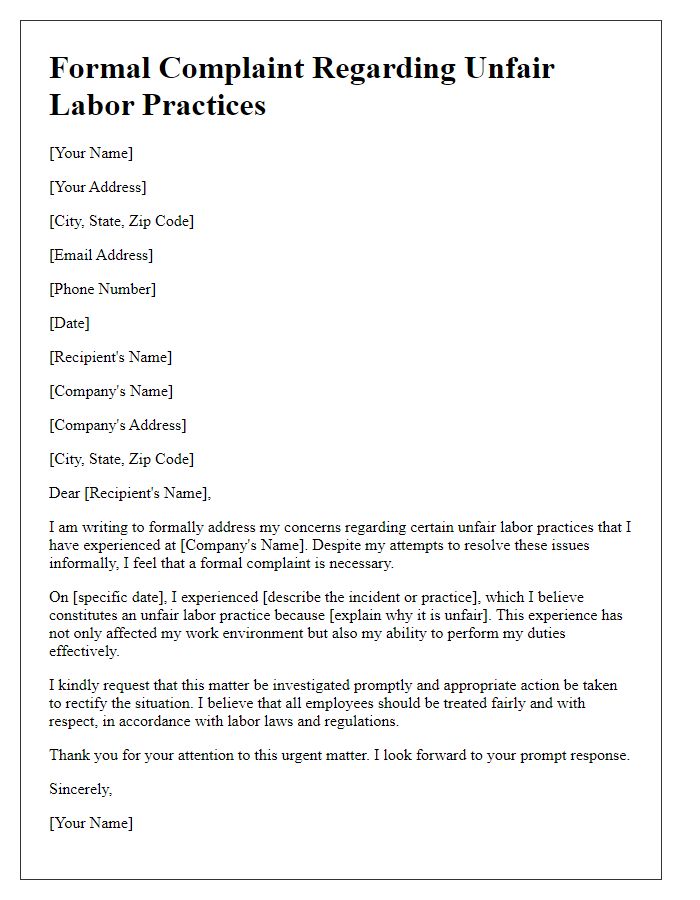
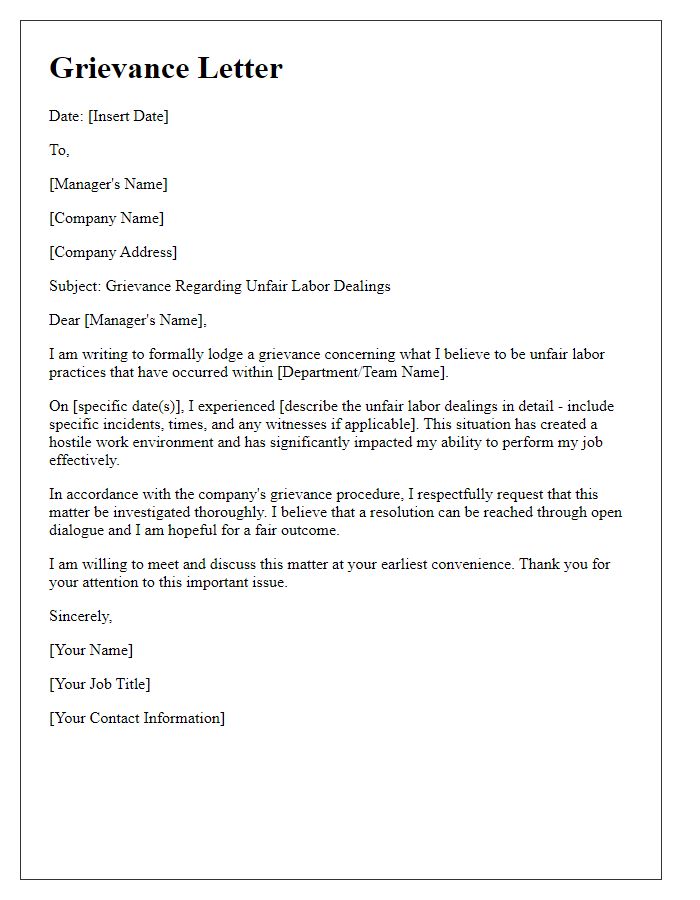
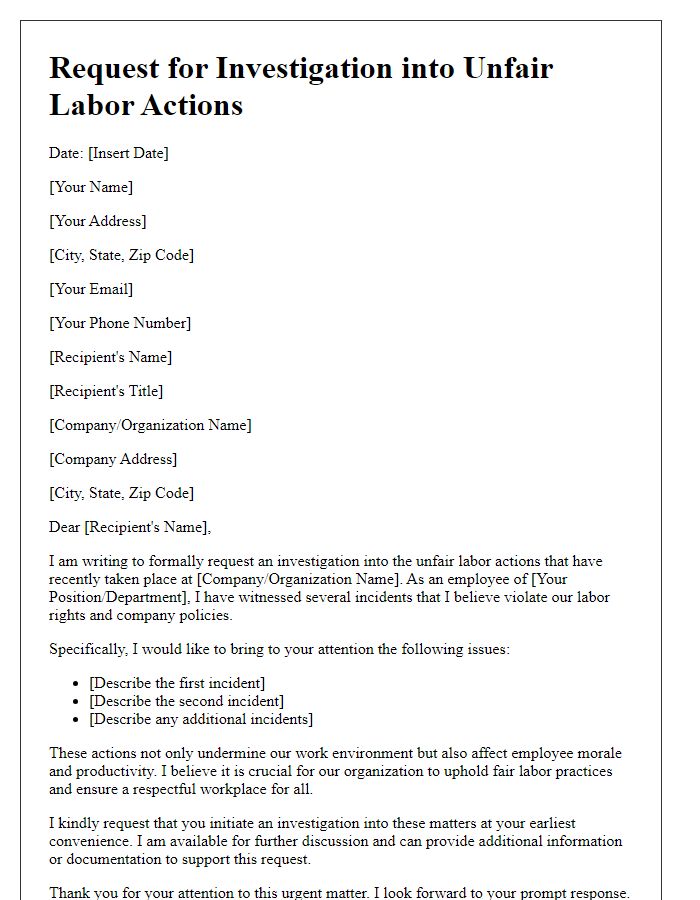
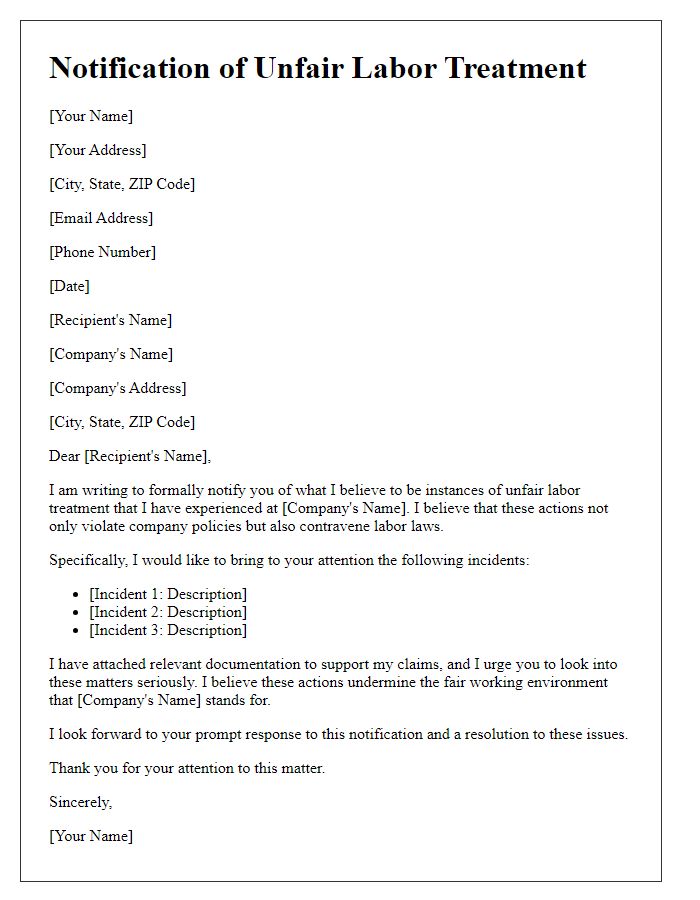
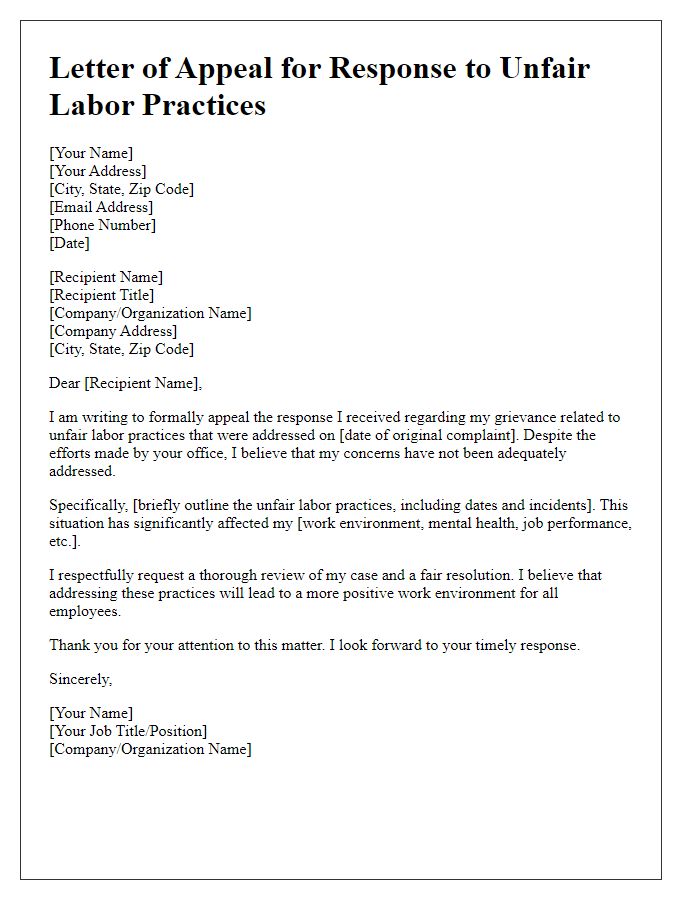
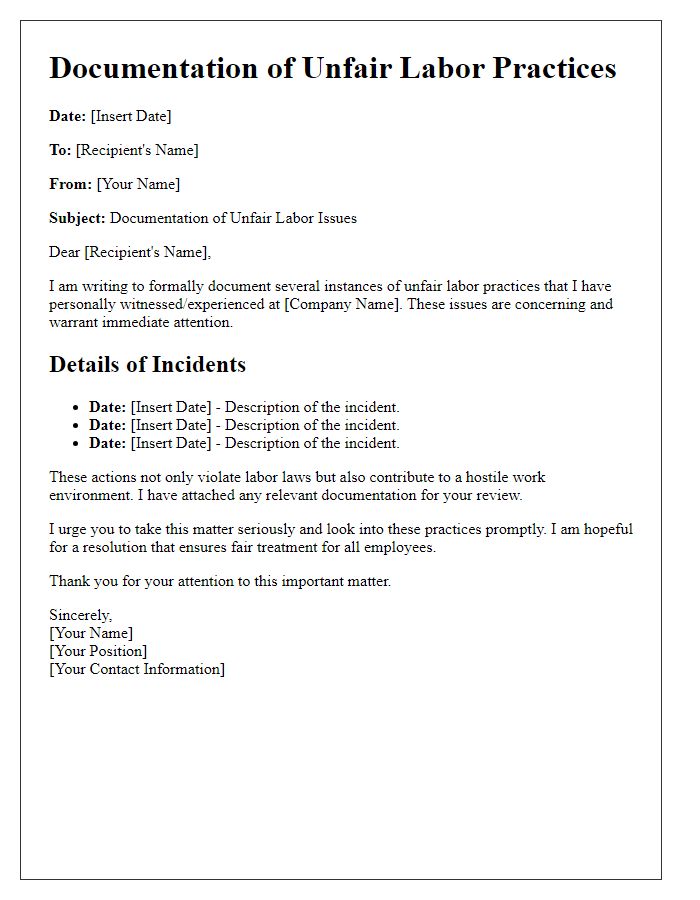
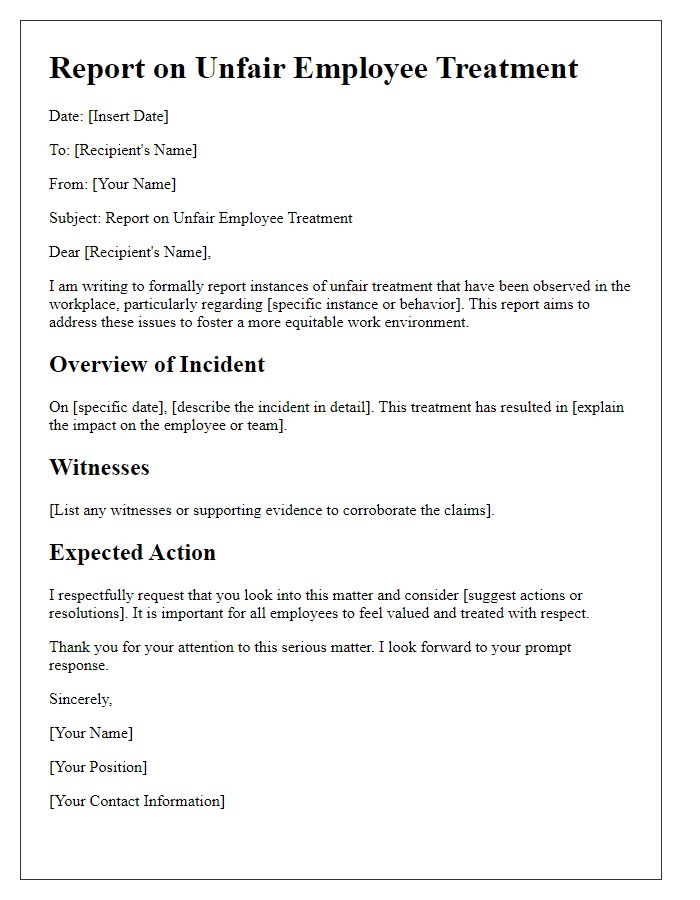
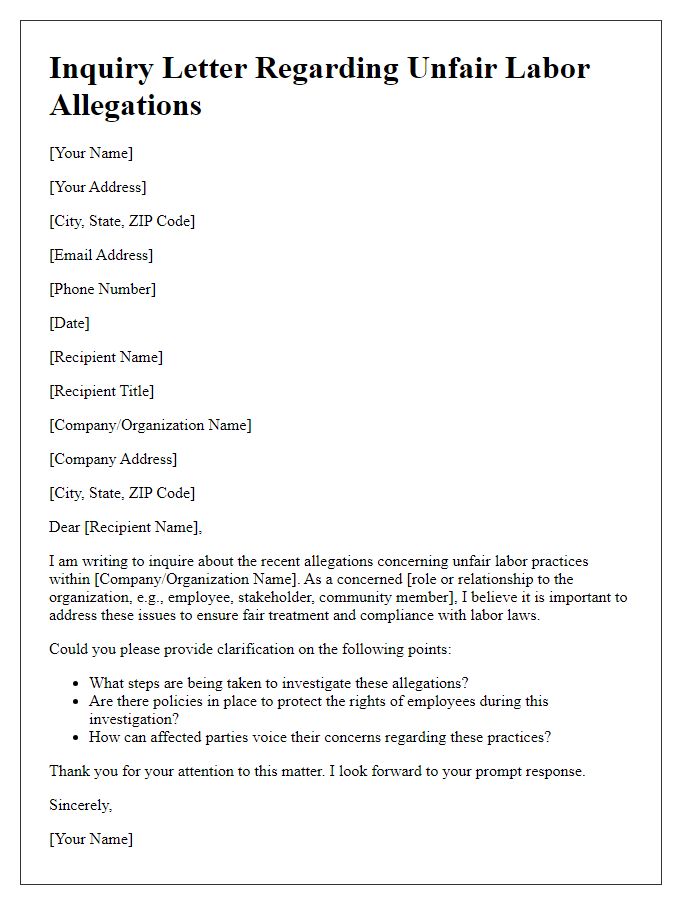
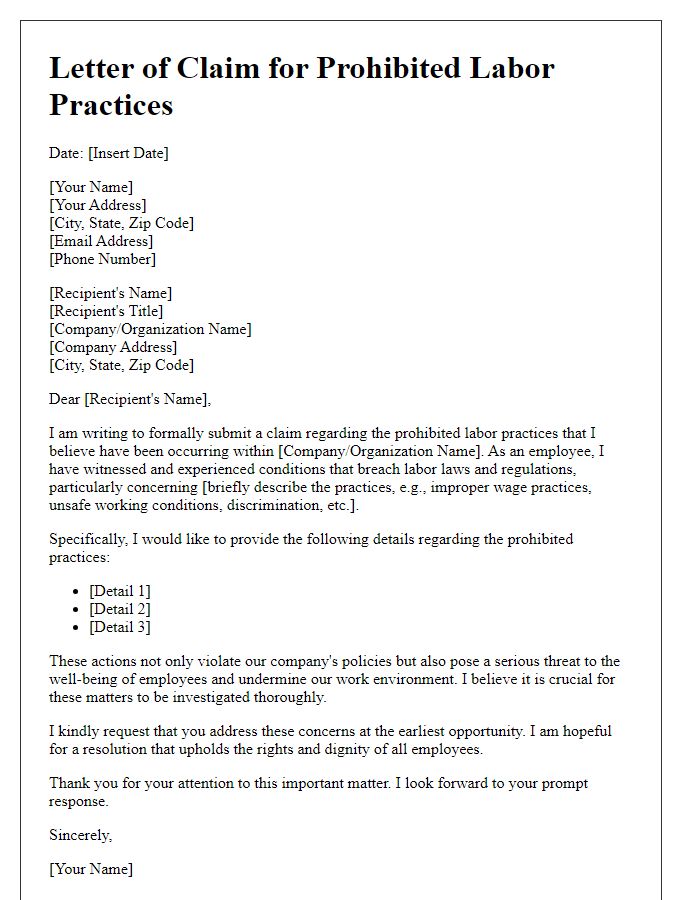
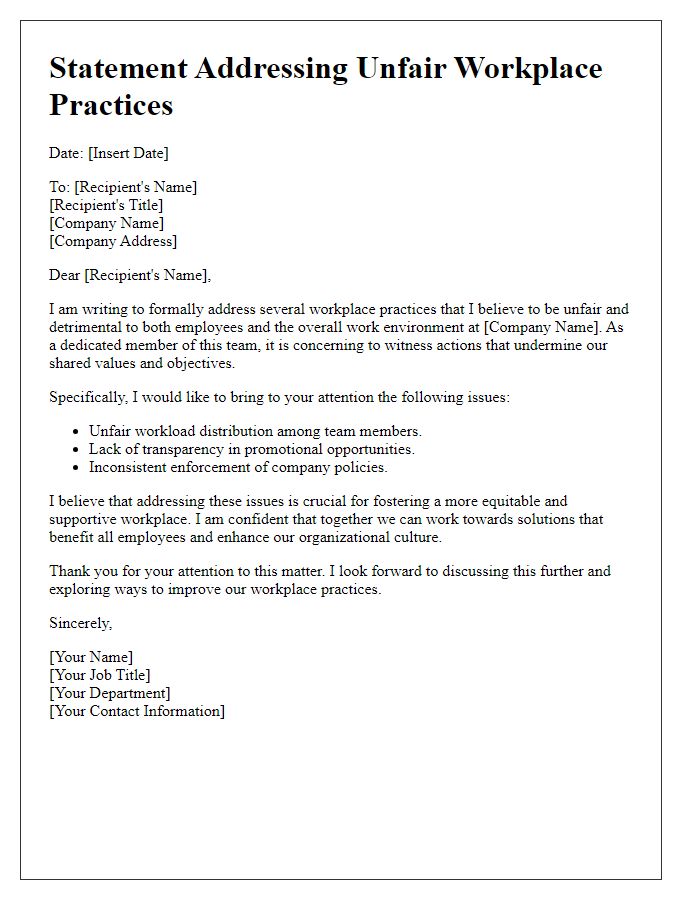


Comments